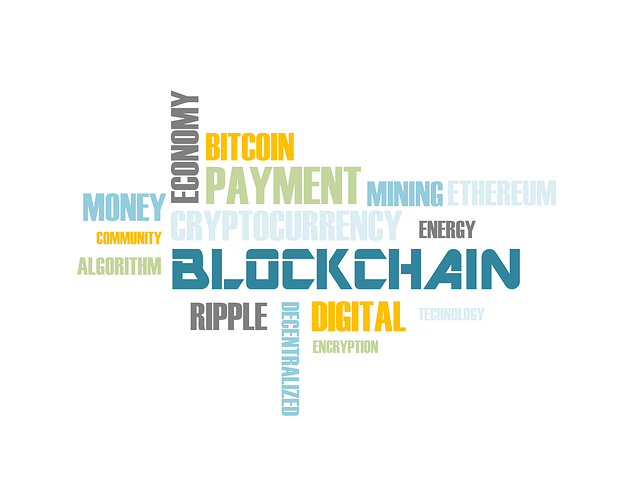Regulating Blockchain and Cryptocurrency
Well, after working with at least 11 Blockchain Technology and Cryptocurrency companies in the European Union (EU) and some in the United States of America (USA) for purposes of structuring the companies or the White Paper to take advantage of the exemptions provided in various laws. For instance, when does the product fall under Securities Laws, reducing tax obligations, taking advantage of Sandbox licenses, application of Know Your Customer policy, among others, it makes it evident that encouraging while regulating the operation of Blockchain Technology and Cryptocurrency is possible.
However, before delving into the meticulous information, it is important that one understands what Blockchain Technology and Cryptocurrency is all about, and more importantly, the Cryptocurrency, which is deemed quite controversial – by various Governments, financial experts, and investors.
Simplifying Cryptocurrency
In certain outlets like Tuskys, Foodplus, Woolworths, among others, one is always asked by the cashiers whether they have a card that enables them to get certain points for any purchase they make, for products of at least a certain value. Currently, the most common are points offered by Safaricom PLC (Safaricom) Bonga Points and Mpesa Tu Promotion.
The Points one achieves for any purchase, it always has a certain value, for instance, as of the date of writing this article, if one had 200 Bonga Points, that person would be able to redeem the points and get airtime worth Kenya Shillings Sixty (KES. 60), or fifteen (15) minutes to make calls, among other offers available. Therefore, due to the value being underpinned on the Bonga Points, they have equally been put into use by other establishments so that individuals can use those Bonga Points to purchase various products, for instance, Safaricom Bonga Points can be used to purchase various products on Kilimall, and Cement from East Africa Portland Cement Company.
Considering the above, one is able deduce the value of Bonga Points and equate its value to any fiat currency. In addition, it leaves a gap on whether the Bonga Points can be defined as Virtual Assets or a Currency (read: cryptocurrency). It is not of importance whether Bonga Points issued by Safaricom are Virtual Assets or Cryptocurrency but it is clear that for one to earn the points, some amount of money must be spent. Therefore, the way Bonga Points are used and valued, is the similar way Cryptocurrency are used and valued in the first instance – nevertheless, the value of Bonga Points can be adjusted by Safaricom.
The major difference between the traditional points (or vouchers) – sometimes imposing names make certain products seem different – and cryptocurrency is that cryptocurrency is introduced in the market as virtual commodities or assets referred to as Tokens, which can be given any fancy name. The said Tokens are issued through a unique Blockchain Technology platform, and some of the known Blockchain Platforms are Bitcoin Blockchain, Ethereum (ERC20 – mostly used –, ERC223, ERC721, etc.), among others. For instance, when utilising ERC20, the Blockchain Code is developed as a self-executing contract for a specific transaction, including interacting with other online Exchange Platforms.
The Tokens (which are commonly referred to as Cryptocurrency) are issued either at a value or free as airdrops. For purposes of this article, the focus is on Tokens issued at a value. Unlike for Bonga Points that one earns after purchasing and using the airtime, for Tokens one earns them by purchasing the Token just like spending money to purchase Shares from a company either through Private Placement (PP) or Initial Public Offering (IPO). Therefore, the Blockchain Technology is programmed in a manner that it will transfer a certain number of Tokens to a person’s wallet upon purchasing the Tokens either using fiat currency or other acceptable cryptocurrencies such as BTC, ETH, et al.
The Tokens are meant to be used in a specific platform, which is referred to as an Ecosystem for that Token.
Legal Issue 01: Ownership and Contractual Factors
The Tokens purchased from the company that is offering the Tokens by way of PP or Initial Coin Offering (ICO), does not issue such Tokens to denote that it is issuing any shares of the company, rather the Tokens are issued as a virtual asset that allows one to navigate through that Blockchain Ecosystem. For instance, if it is peer-to-peer loan issuing Blockchain Ecosystem, any purchaser of Tokens in that Ecosystem, the Tokens will be used as collateral for purposes of securing a loan from another person in the same Ecosystem. Therefore, on a peer-to-peer loan platform, if person X has Kenya Shillings One Hundred Thousand (KES. 100,000.00) and Y has 10,000 Tokens (virtual assets) worth Kenya Shillings One Hundred and Twenty Thousand (KES. 120,000.00) then person Y can issue the 10,000 Tokens to X to hold it as collateral as X issues Y with the KES. 100,000.00. Thereafter, Y will get back the 10,000 Tokens upon paying back the KES. 100,000.00 to X.
Considering the above, it is evident that the purchase of tokens does not mean one has a similar right as a shareholder, neither does it amount to the issuance of shares like in PP or IPO. In addition, though the self-executing contracts through the Blockchain Technology might be up to standards, there other factors that makes it unclear whether it is a regular contractual arrangement or derivative contract based on the fluctuation of the value of the virtual assets.
Legal Issue 02: Definition
Token ought to be given a definitive legal approach, for instance, is it a Legal Tender or a Virtual Asset. If the law gives it a definition, it will be easy to regulate it, for example, in the USA, cryptocurrency is regarded as a Virtual Asset.
Legal Issue 03: Tax/ VAT
 If the law defines what Tokens are – every jurisdiction tends to define something based on its political, social, and economic factors – it will be easy to impose the tax. For instance, in the USA, Estonia, Germany, among other countries, have been taxing cryptocurrency/Tokens based transactions.
If the law defines what Tokens are – every jurisdiction tends to define something based on its political, social, and economic factors – it will be easy to impose the tax. For instance, in the USA, Estonia, Germany, among other countries, have been taxing cryptocurrency/Tokens based transactions.
Legal Issue 04: Money Laundering
In all matters, Money Laundering is the crucial issue that makes most States shy away from encouraging the use of Cryptocurrency. However, shying away does not necessarily stall such activities. Therefore, supporting the use of Tokens and imposing reasonable policies towards the Cryptocurrency based companies will enable the companies to have efficient Know Your Customer (KYC) procedures, Anti-Money Laundering (AML) policies, Anti-Terrorism Financing (ATF), among others.
General Regulations
The use of Sandbox Policies for issuing Sandbox Licenses will go a long way in providing the State with the possibility of understanding the dynamics of Blockchain Technology and Cryptocurrency based projects, therefore, providing more enhanced policies as time goes by. Importantly, it will secure its citizens from being swindled by various people pretending to initiate ICO projects for a good course within its jurisdiction.
Developing Sandbox Policy will assist in developing explicit models on how the ICO is conducted, for instance, as stated earlier in this article, the ICO is a practice that is quite like PP and IPO, but the main difference is that the purchased Tokens does not make one a shareholder.
Conclusion
Regulating Blockchain and Cryptocurrency projects will not only enhance FinTech development in the State and Private entities but also Foreign Direct Investment, as it is evident that cryptocurrency tends to show high demand based on the technological innovation that the project is all about and the solutions it intends to introduce. A precise analysis of the popular cryptocurrency, Bitcoin, it has shown that Bitcoin’s value tumbles when there is the change of legal framework in various countries, and more particularly when those laws are harsh. Therefore, there are high chances that implementing laws that encourage the use of cryptocurrency will enhance the stability of the cryptocurrency. As noted, similar practices like that of cryptocurrency have been in place.
Cryptocurrency in Kenya | Cryptocurrency trading | Contact Us | Is cryptocurrency real money?



